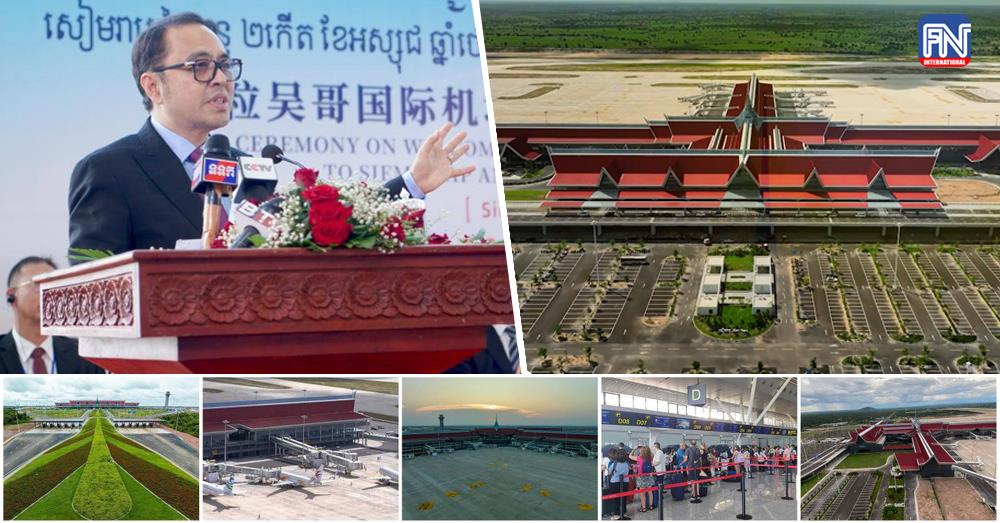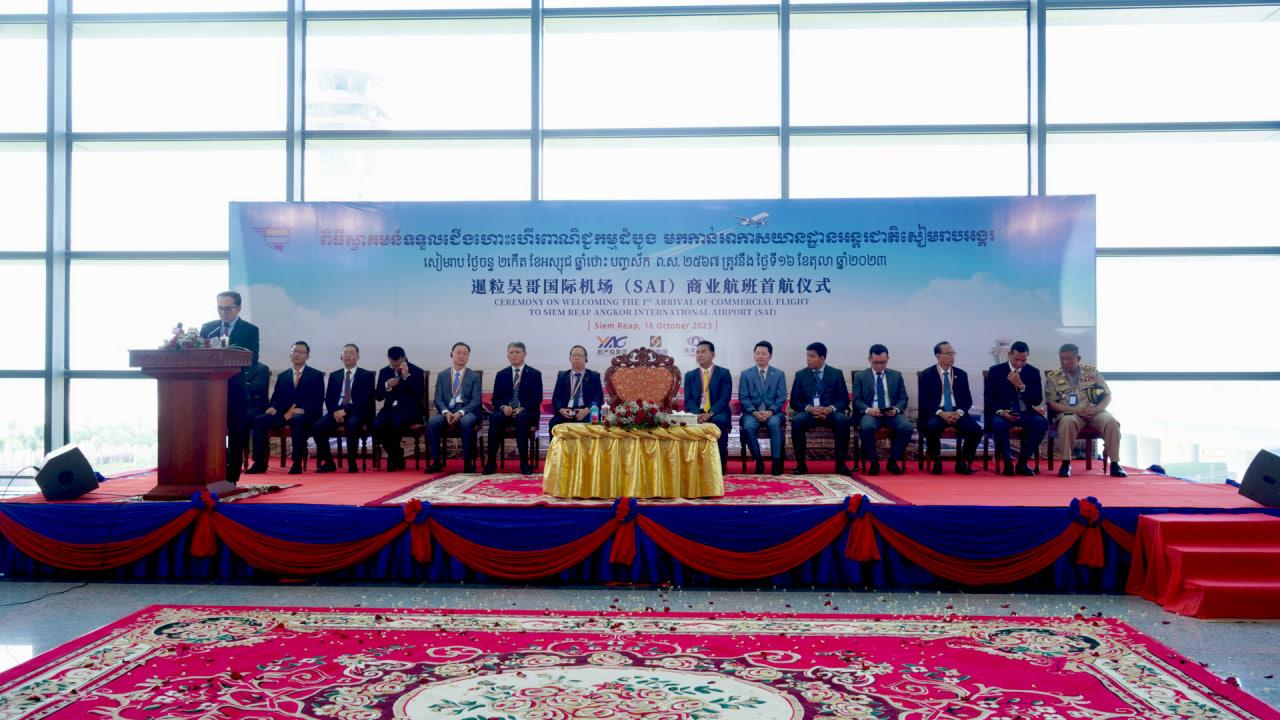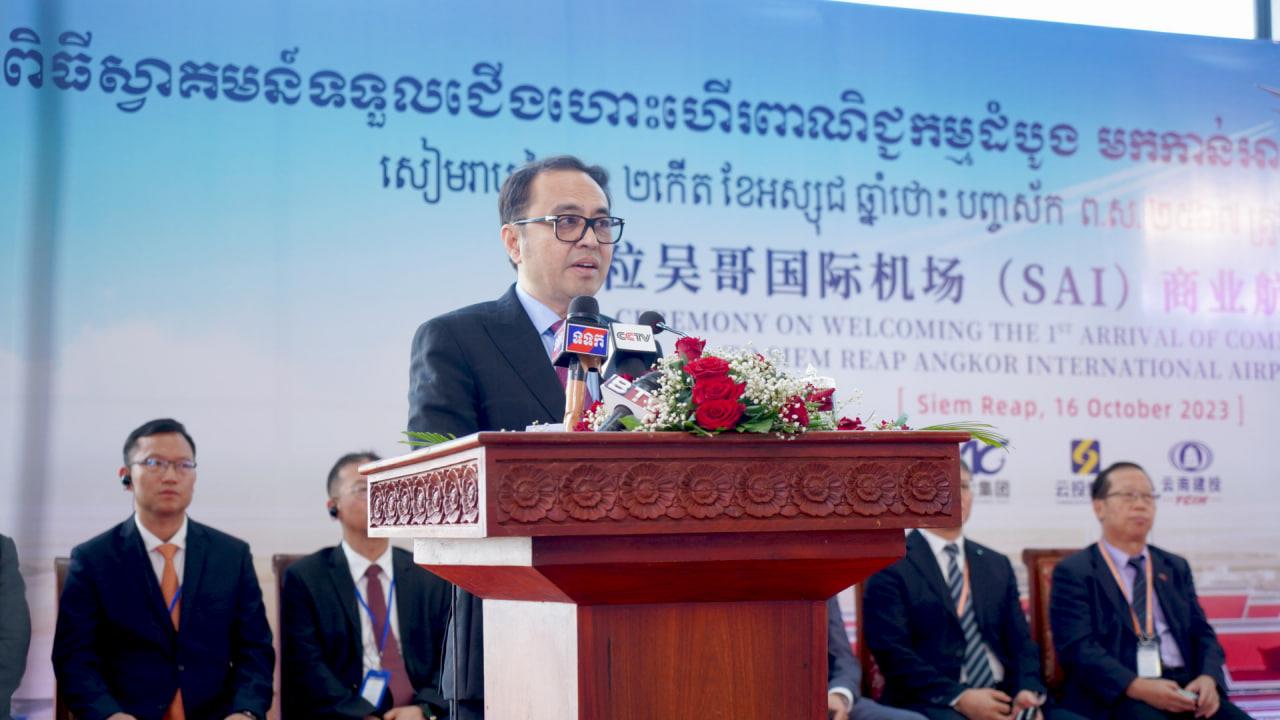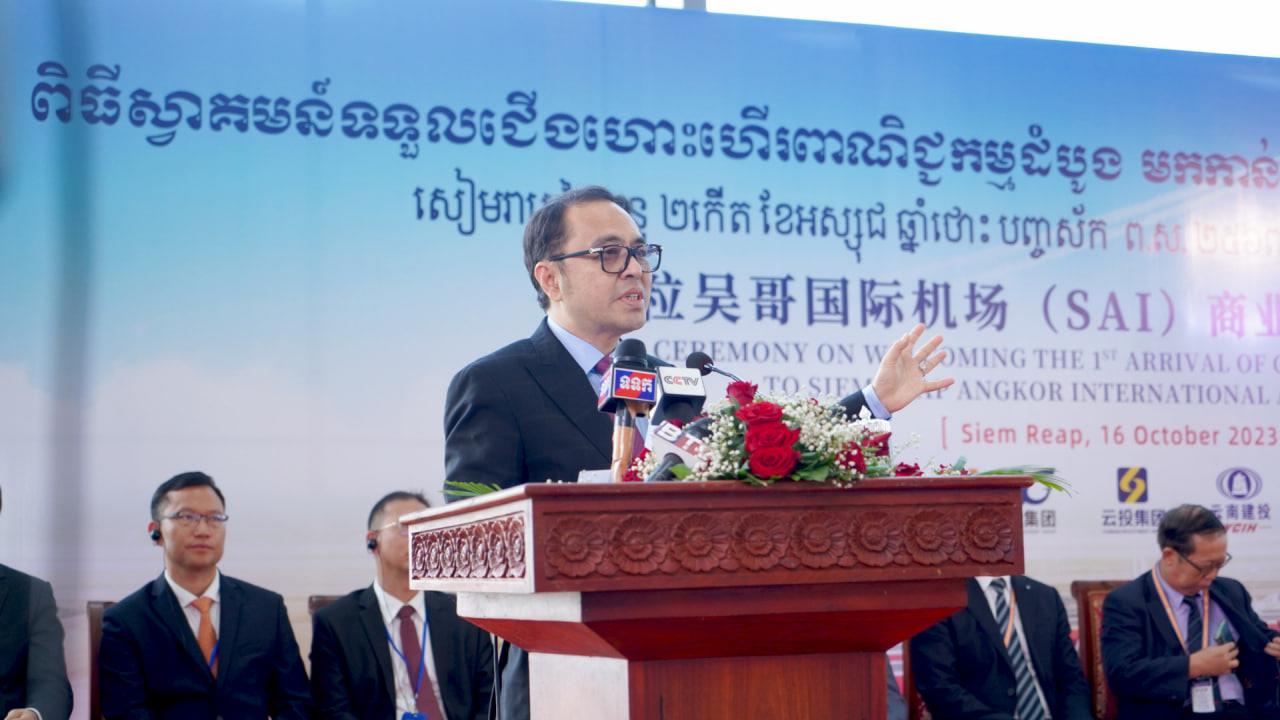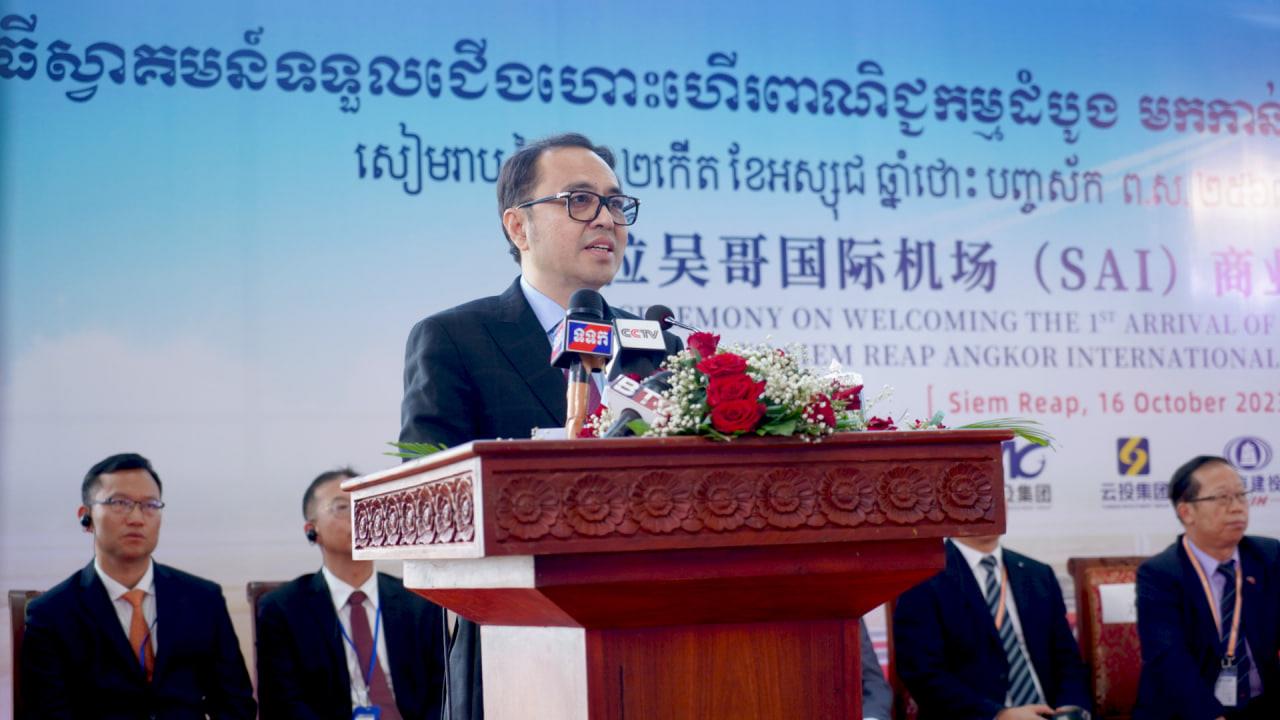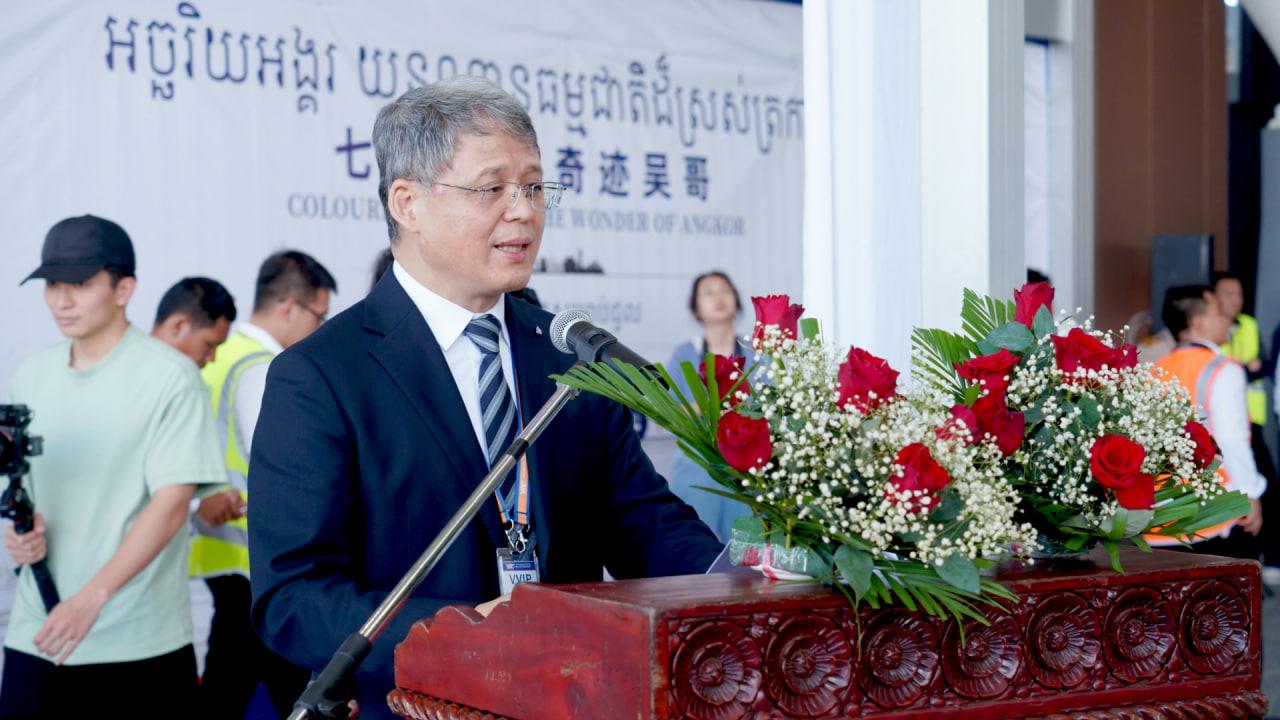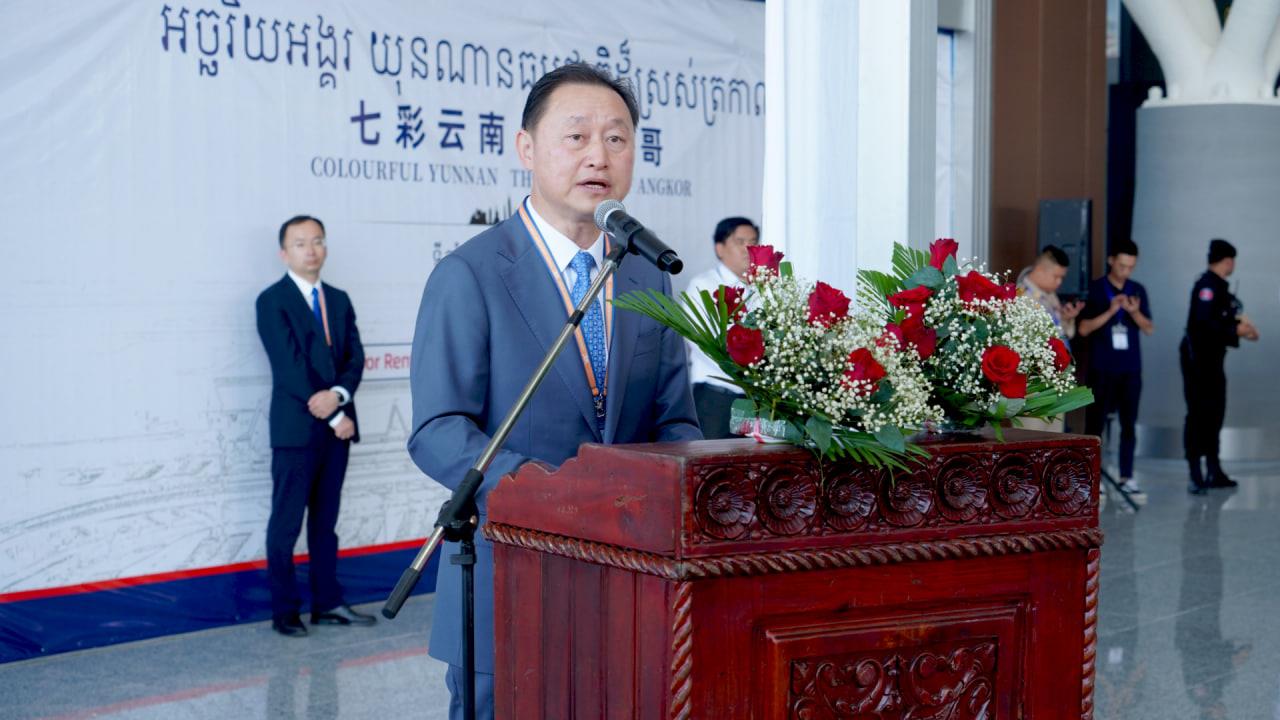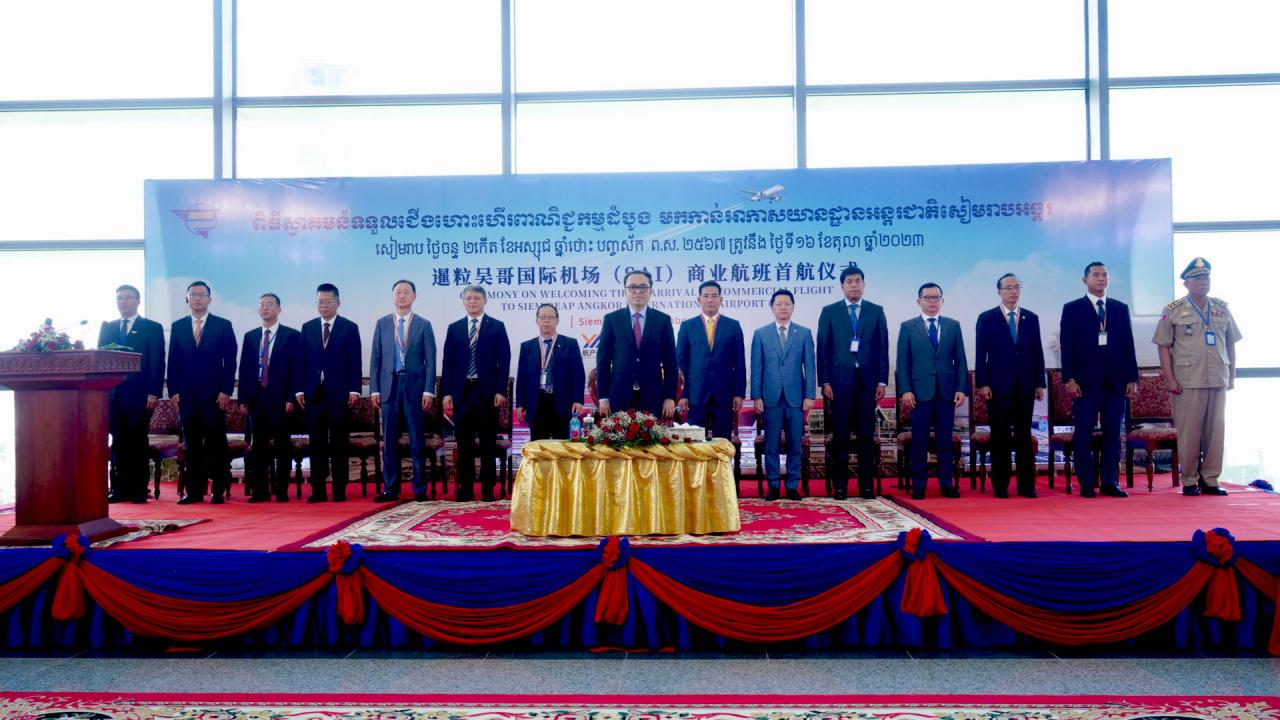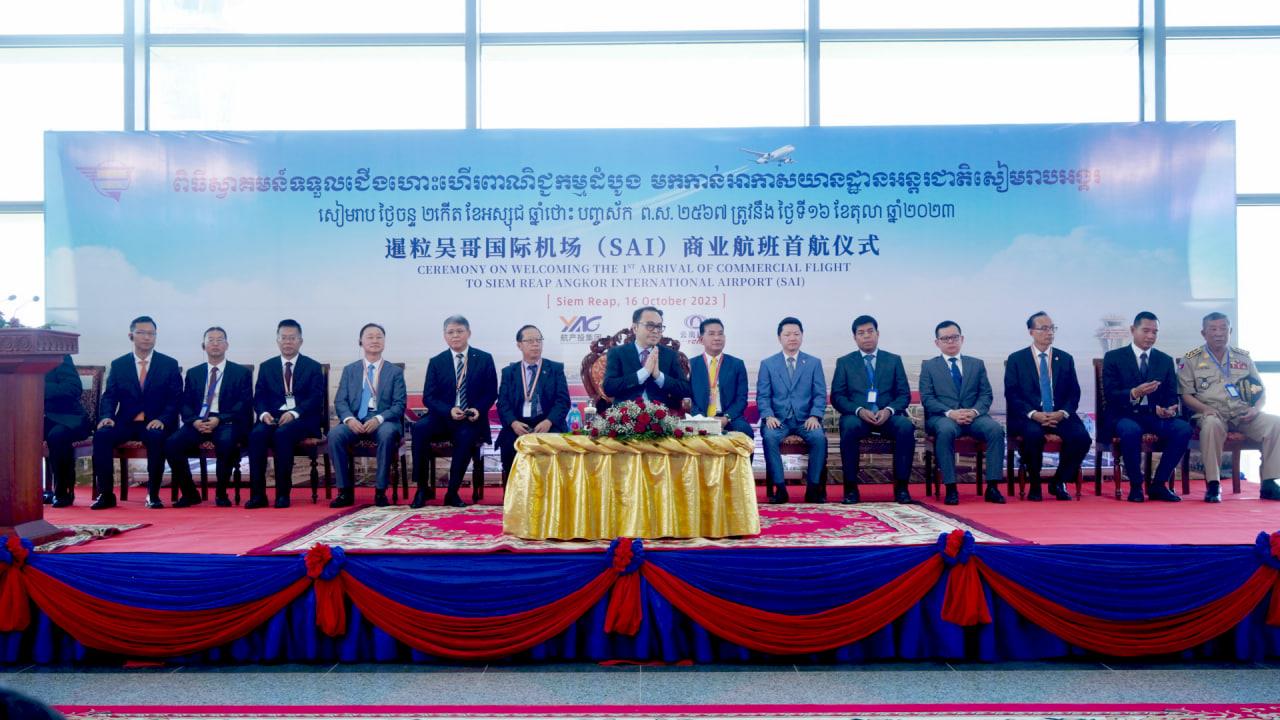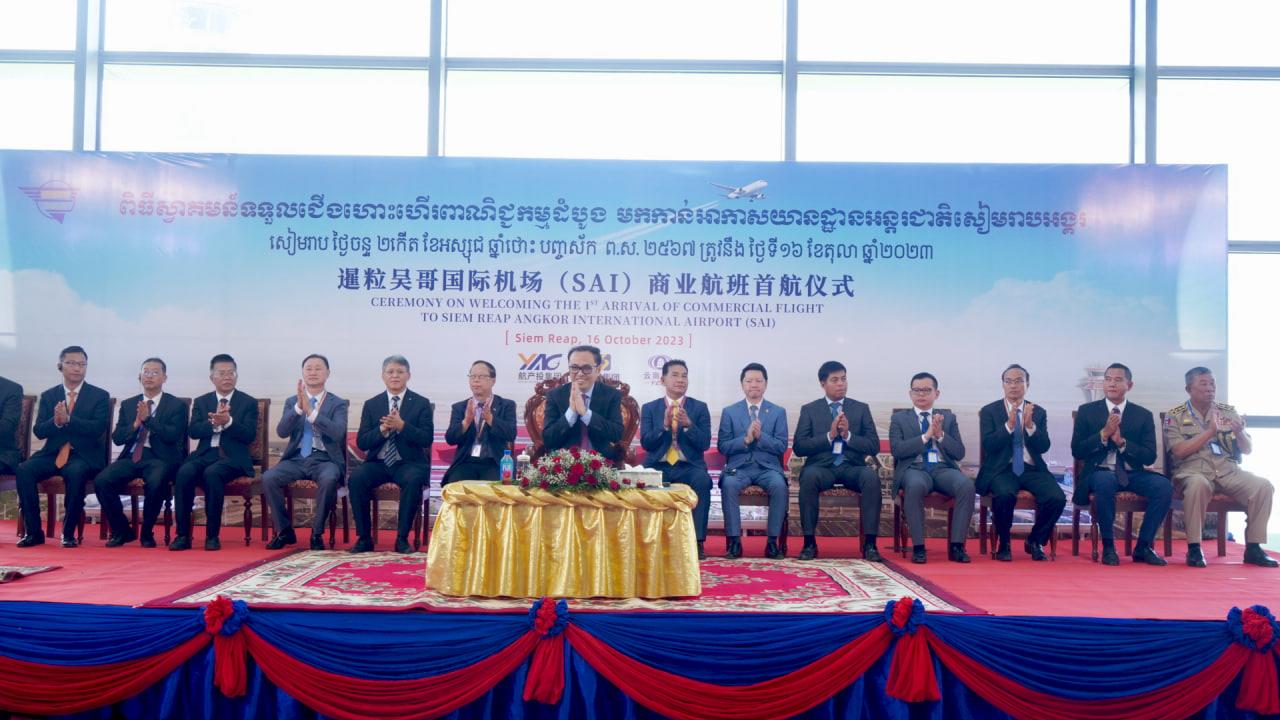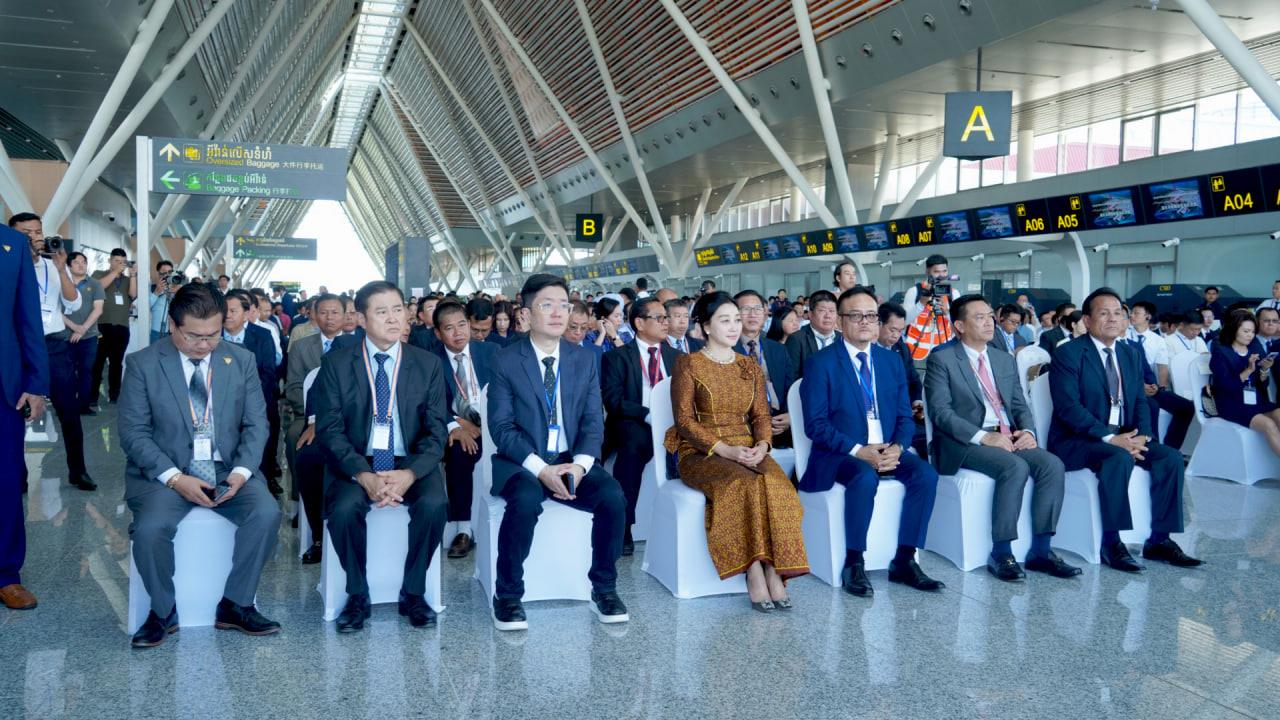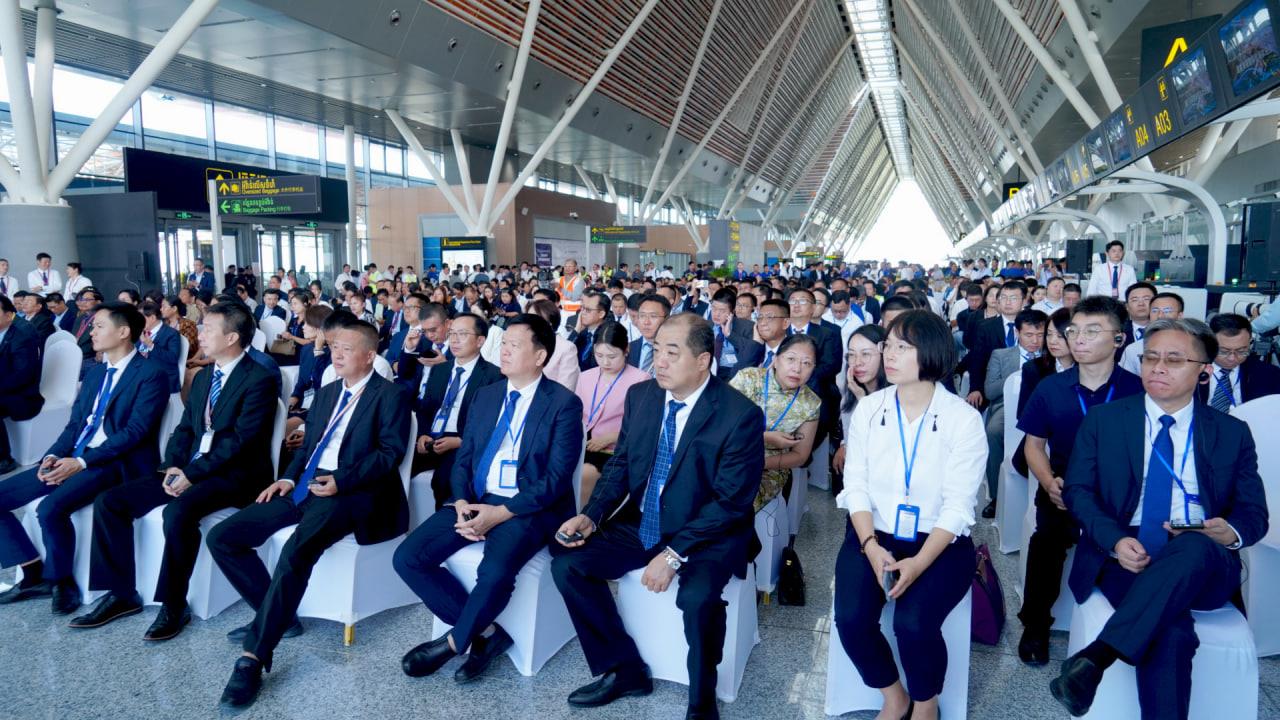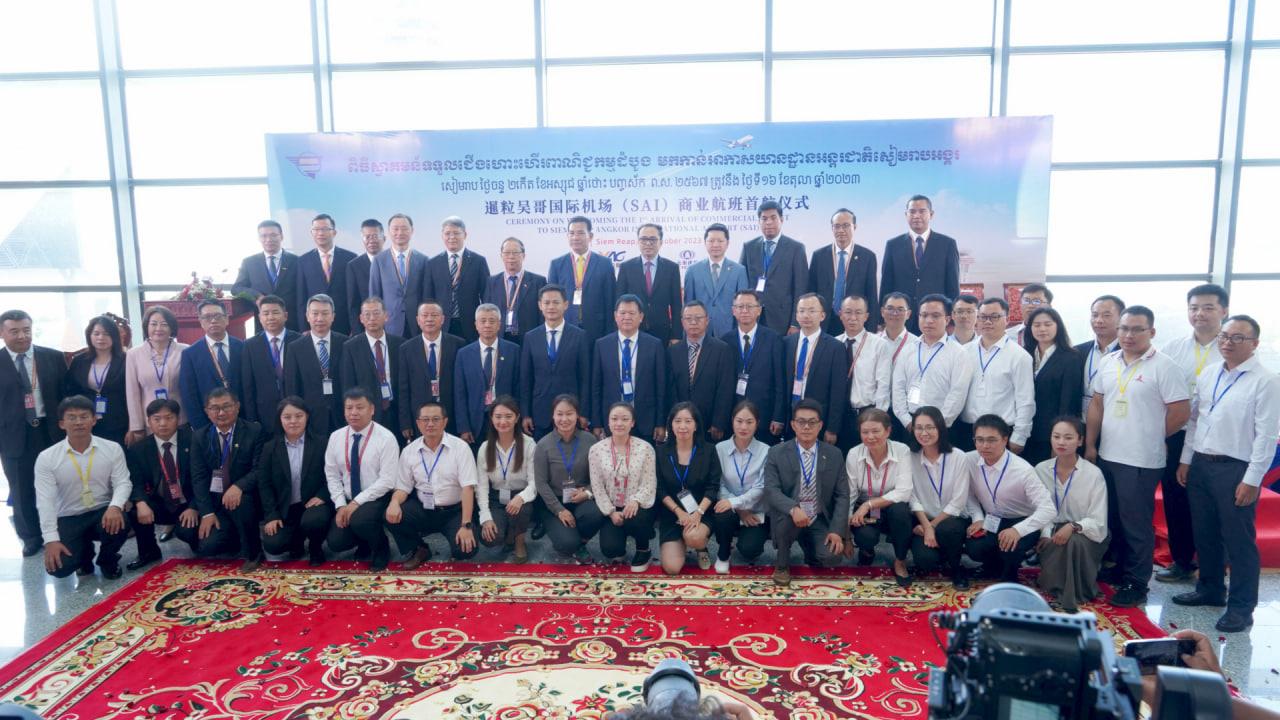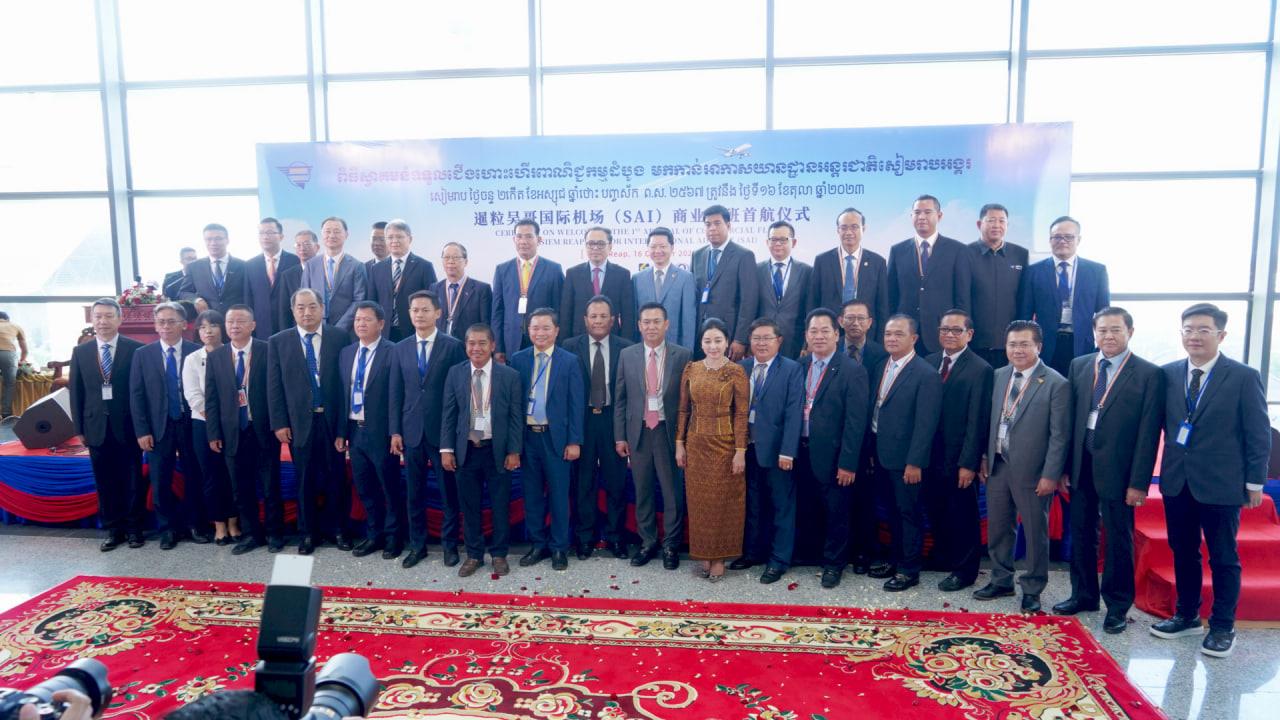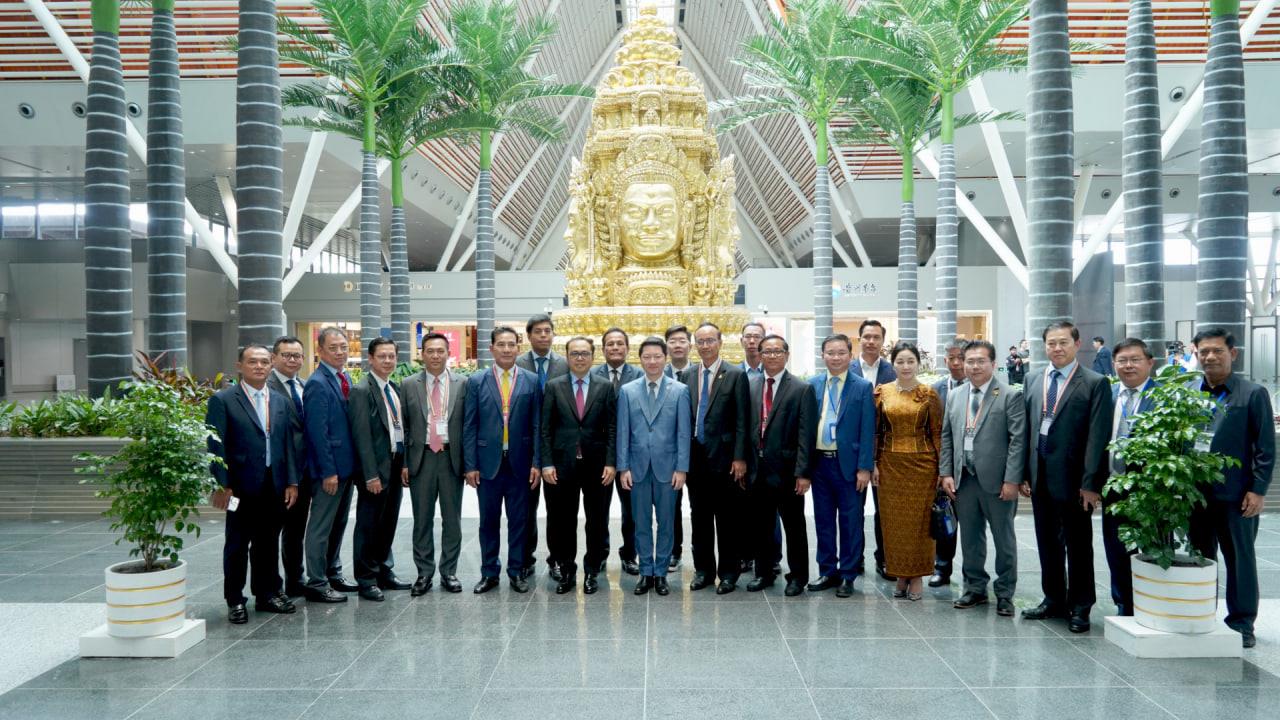Siem Reap (FN), Oct. 17 – Minister in charge of the Office of the Council of Ministers Vongsey Vissoth said that Siem Reap-Angkor International Airport (SAI) is a historic achievement of Cambodia and this airport will become a major economic force for the kingdom and the region, speaking during the official launching ceremony on 16 October 2023 at the airport.
Minister Vongsey Vissoth underlined that SAI will not only promote tourism but also benefit agriculture, technology, and other sectors. Apparently, it will act as an air transportation hub.
"In the future, the airport will potentially become the economic pole not only in Cambodia, but also in the region," the minister underscored.
Vissoth continued that the SAI launching was in line with the open-skies policy that was introduced by Samdech Techo Hun Sen, allowing direct flights to Siem Reap in order to expand the country's tourism industry. This policy attracts tourism and transportation hubs.
Vissoth pointed out that in the past, most of the international passengers and tourists who visited Cambodia came from neighboring countries because the old airport was able to accommodate only small aircraft. Fortunately, the new airport is larger and can accommodate direct flights from distant places, which is a big attraction for tourists and investors.
According to minister in charge of the State Secretariat of Civil Aviation Mao Havannall, the construction of the Siem Reap-Angkor International Airport (SAI) is an initiative with a long-term vision.
SAI is a 4E class international airport with a 3,600-meter runway that can accommodate the landing of all kinds of aircraft such as Airbus 350 or Boeing 787. Most importantly, it can upgrade to 4F class, the highest class, that can take off and land large aircraft such as A380-800 and B777-9.
The airport has 38 berths and is able to handle 7 million passengers a year, and the figure will rise to 12 million passengers annually from 2040. The airport can handle 10,000 tonnes of air cargo per year from 2023 and 26,000 tonnes a year from 2040, as well as 65,800 flights per year from 2023 and up to 112,700 flights annually from 2040.
=FRESH NEWS
